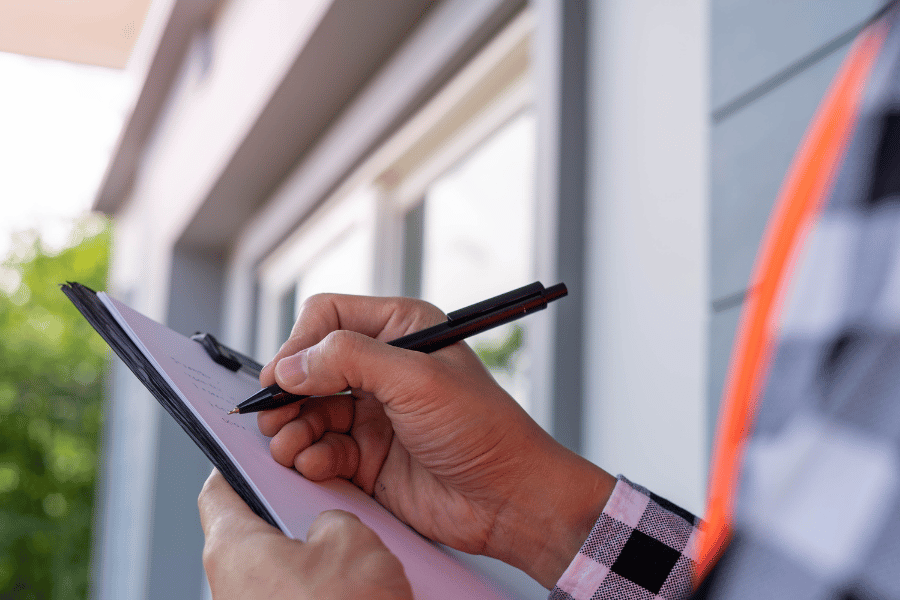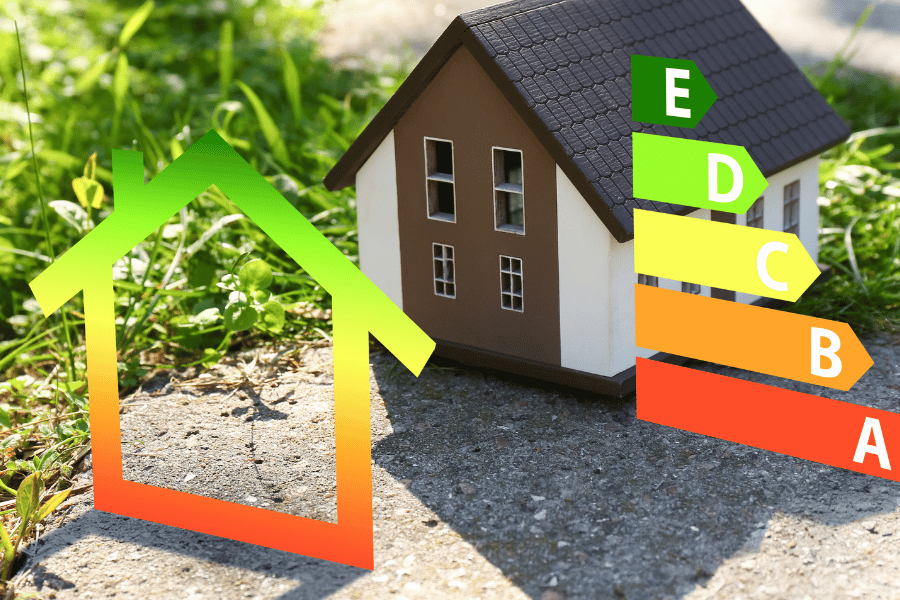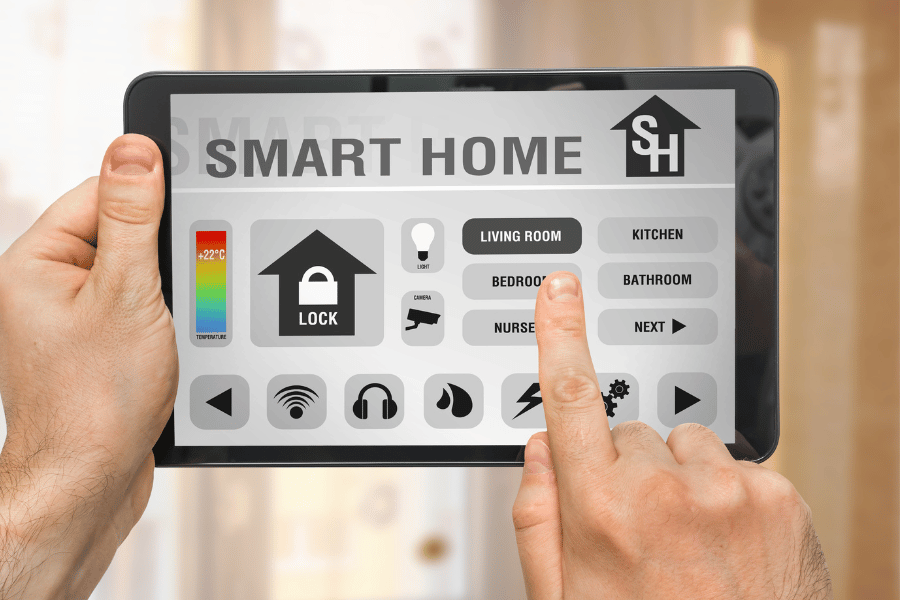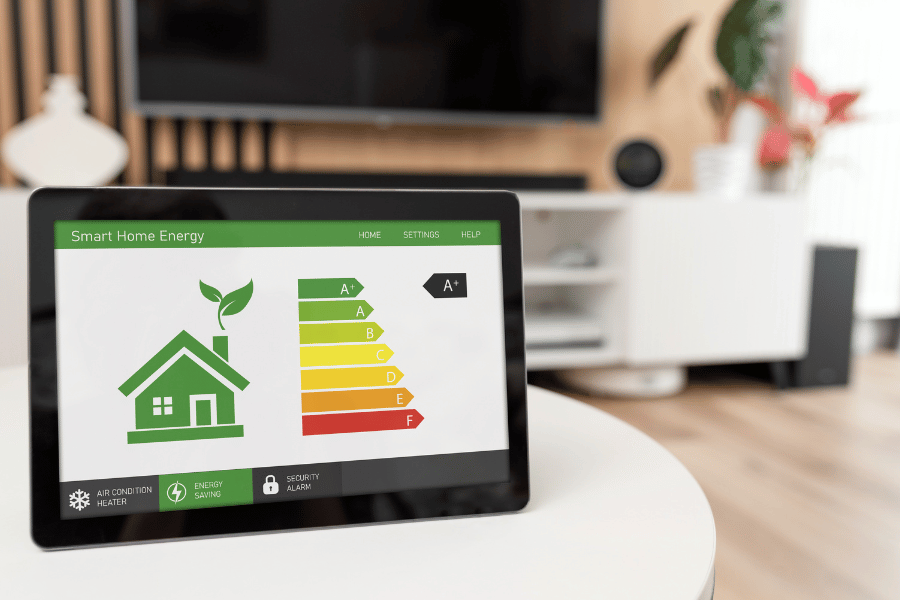Green Living in Raleigh: 10 Sustainable Home Tips
July 05th, 2024
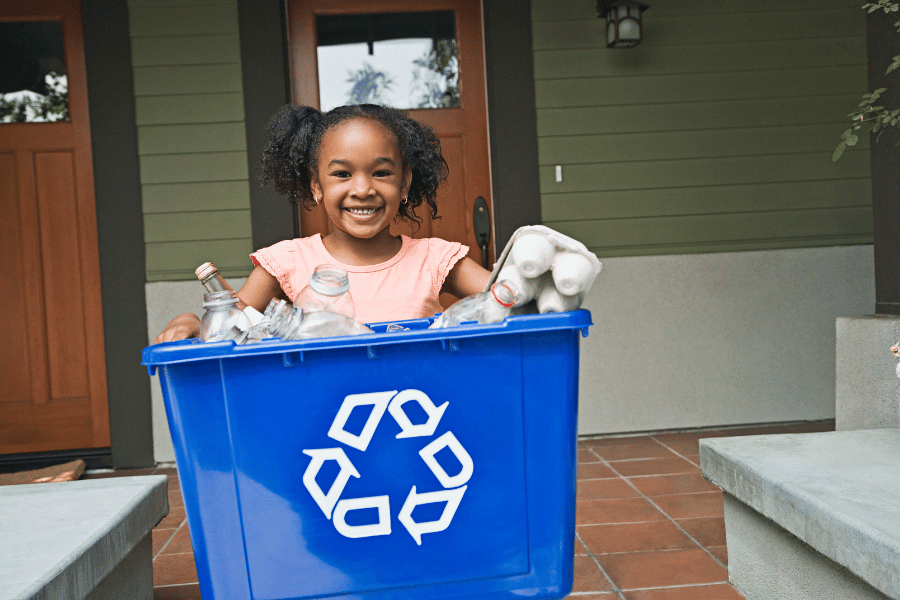
Sustainable Home Tips
Are you looking for ways to be more sustainable at home? Here are ten sustainable home tips to live a green and eco-friendly life in Raleigh!
Sustainability is the idea that humans can co-exist with nature and create a healthy and liveable future. This concept is very important today since it has many positive impacts on the environment, economy, and society as a whole.
With the goal of preserving our planet and natural resources, prioritizing sustainability will reduce pollution and protect natural habitats. It is easy to adopt sustainable habits into everyday life, and living sustainably at home has many benefits not just to the environment but to your health and wallet.
If you want to incorporate sustainable habits at home, you are in the right place. There are many ways to reduce your carbon footprint by lowering energy consumption, improving air quality, and decreasing pollution.
Making little changes at home in Raleigh can make a big difference, and if you follow the tips below, you will be one step closer to living sustainably.
Check out these ten sustainable home tips
Chapters
1. Reduce, Reuse, and Recycle
Reduce, reuse, and recycle are three popular approaches to eliminating waste and protecting the environment. Referred to as the three R's, these three approaches to sustainable living help keep items out of landfills and encourage mindful household waste management.
Waste is defined as anything that is thrown away or no longer used. While not all waste can be reduced, reused, or recycled, homeowners should manage it and protect the environment when possible.
Reducing waste is the first step since it keeps waste from being produced in the first place. Deciding what to buy and how many items you need can significantly minimize waste before bringing new items into the home.
Reusing is the next important step and a great way to minimize waste. It involves taking an already-used item and repurposing it for another use. Reusing saves time, energy, money, and natural resources, and it also helps prevent pollution caused by the production and transportation of new products. Sometimes, reusing items requires creativity, but a little goes a long way when living sustainably.
Last but not least, recycle when possible. Depending on where you live, most cities and towns offer recycling collections in your neighborhood. Not all products can be recycled, but most glass, aluminum, cardboard, and plastic bottles can easily be recycled.
Recycling helps decrease the amount of material in landfills by changing an item through a manufacturing process and making it into something new again. Most of the time, these items are recycled into the same material, so make sure to recycle only acceptable materials in your curbside recycling bin.
| Best Ways to Reduce | Best Ways to Reuse | Best Ways to Recycle |
| Avoid single-use items | Bring reusable shopping bags to the store | Make sure recyclable items are clean |
| Look for items with a small amount of packaging | Use cloth napkins instead of paper towels | Know your plastics |
| Opt for items that can be reused or recycled | Opt for reusable containers | Flatten cardboard boxes and containers |
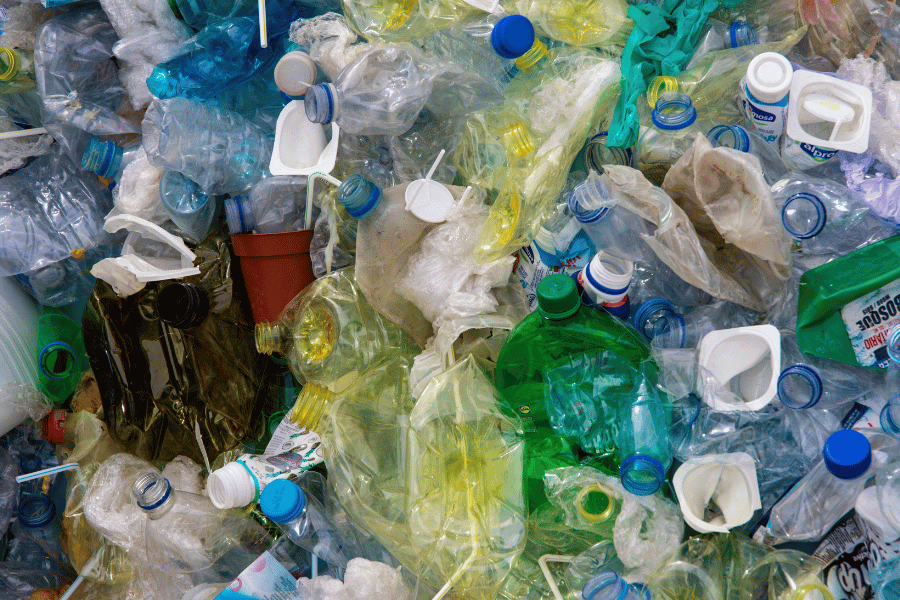
2. Compost Fruit and Veggie Waste
Did you know that 8% of greenhouse gas emissions come from wasted food? Composting organic waste at home is a great way to live sustainably since it has many environmentally friendly benefits. Organic waste like food scraps and yard trimmings that are composted will create a nutrient-rich mixture that can be added to soil to support plant growth.
Not only can composting support local food production in your background garden, but it helps reduce greenhouse gas emissions, improves soil health, reduces erosion, conserves water, improves water quality, and reduces the need for fertilizers and pesticides.
If you want to start composting at home, the first thing you should do is collect fruit and veggie scraps and find a bin to store them in, either an old trash bin or whatever else you have available.
Next, layer your food scraps with carbon-rich brown items, including newspapers, pine needles, and dried leaves. Then, rotate the pile every now and then with a stick until the materials break down and decompose to create nutrient-dense compost.
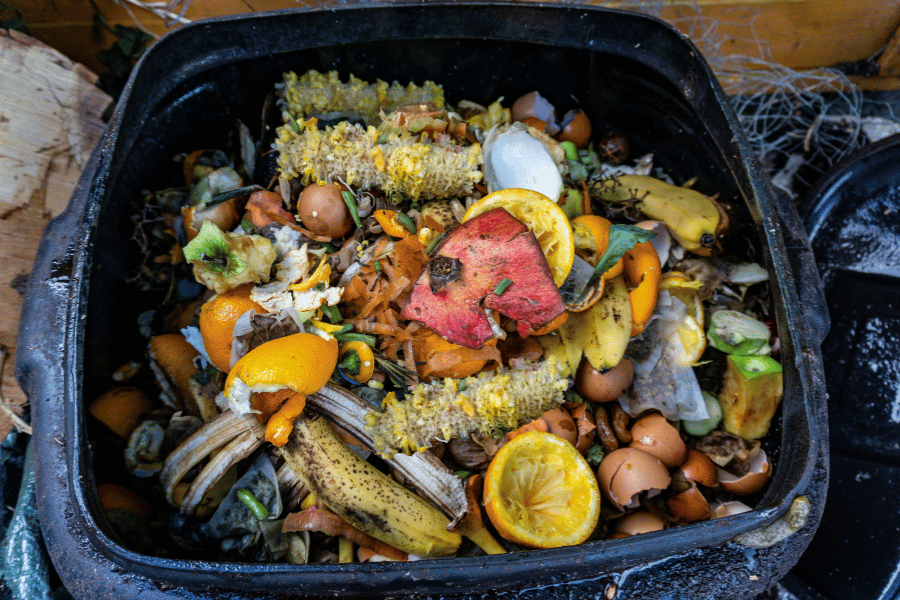
3. Invest in Energy Efficient Appliances
Home appliances such as the dishwasher, laundry machine, and dryer use a lot of energy, especially if used frequently. Typical appliances account for 14% of an average household energy bill.
The power needed to operate these home appliances can lead to large electric bills and energy usage, which are not sustainable for the environment or your wallet.
By investing in energy-efficient appliances, specifically Energy Star Appliances, your household energy bill will be cut in half since they use 10 to 50% less energy to operate than traditional models.
Do you think you can qualify for the Energy-Efficient Home Improvement Credit? Consider incorporating these energy-efficient appliances into your home.
4. Install Solar Panels
Residential solar panels are rising in popularity in gated communities and neighborhoods. They are a sustainable option that allows homeowners to generate clean, renewable energy.
Solar panel installation increases energy independence and turns solar energy into electrical power, which reduces a homeowner's reliance on other energy sources that require greenhouse gas emissions.
Installing solar panels on your home is a long-term investment and an excellent way to consider your home's sustainable future. If you are searching for ways to make your home energy efficient, check out this article.
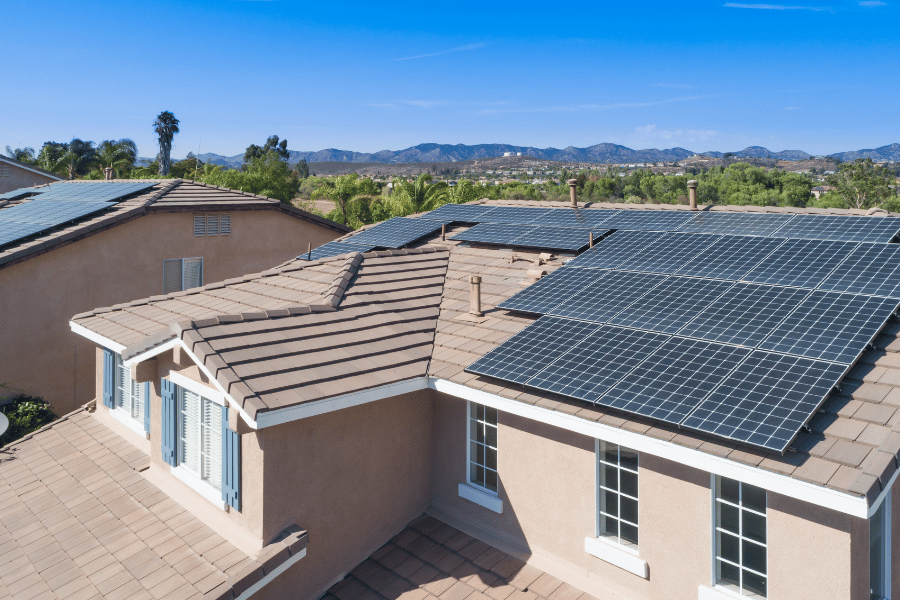
5. Use Natural Cleaning Products
Traditional cleaning products can harm the environment and lead to poor indoor air quality. Most cleaning products on the market are sold in plastic containers that are not recycled, which end up in landfills and negatively impact the local environment.
Not only are cleaning products difficult to dispose of, but they also lead to water and air pollution. Most chemicals in cleaning products are toxic and can end up in water, streams, lakes, and water treatment plants.
Instead of using cleaning products that are toxic and non-biodegradable, opt for natural cleaning products that will clean your home just as well without all of the negative impacts.
White vinegar, baking soda, borax, and citrus fruit are some of the best natural cleaning products. Add them to your daily cleaning routine to your spring cleaning checklist.
6. Install LED Lights
LED lights are a more sustainable solution than traditional lighting options because they are extremely energy efficient, use at least 75% less energy, and last up to 25 times longer than traditional incandescent bulbs.
Light emitting diode (LED) lights are often more durable and has made a large impact on energy saving already. LED Products are not only better for the environment, but they help homeowners save money on electric bills. The average household saves about $225 a year on electric bills by switching to LED lights.
7. Plan a Garden
Gardening is a great way to boost your mood, save money, improve your health, and grow high-quality food in your backyard. There are many benefits of gardening, and choosing to garden sustainably will positively impact the environment, wildlife, and your wallet.
One of the first steps to sustainable gardening is to grow the right plants. Some of the best options to get started include native plants, leafy greens, herbs, tomatoes, and root vegetables. Choose the organic approach by using compost and avoiding fertilizers and pesticides, which is especially important if you are growing food for your family.
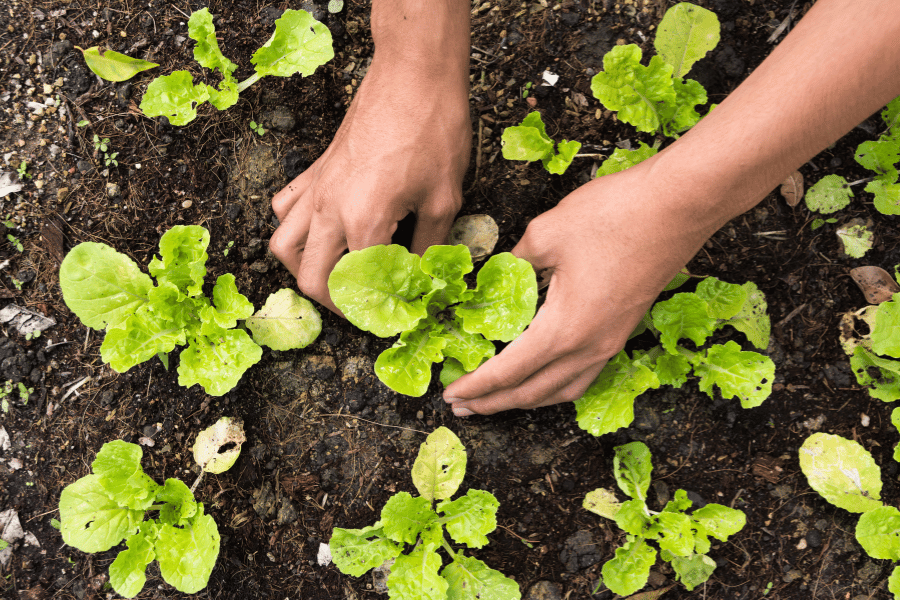
8. Have a Green Laundry Routine
A green laundry routine is important to have in the home since it is a responsible approach to laundry that minimizes the environmental impact of washing loads of laundry throughout the week.
The simplest solution is to wear clothes longer and do fewer loads of laundry, but when it is time to wash your clothes, the best approach to sustainable washing is to use eco-friendly detergents and fabric softeners, use cold water, and wash fuller loads with shorter cycles.
Traditional washing machines use 19 or more gallons per load. Conserving water in your laundry routine will lead to a more sustainable life.
9. Donate or Sell Old Clothing
The textile industry is known to have negative impacts on the environment. When clothing is old and worn, it can be easy to just throw it in the trash, but once clothing is discarded, 66% is sent to landfills, where it decomposes and can cause numerous health and environmental concerns.
Instead of throwing clothing away, choose to donate or sell old clothing to help cut back on textile waste. Sell old clothing on sites such as Facebook Marketplace or Poshmark. There are even businesses such as ThreadUp, an online consignment store that is a great solution to buying and selling high-quality secondhand clothing.
There are also many thrift stores and local volunteer organizations that would love clothing donations. From GoodWill to the Salvation Army, look online for drop-off locations near you.
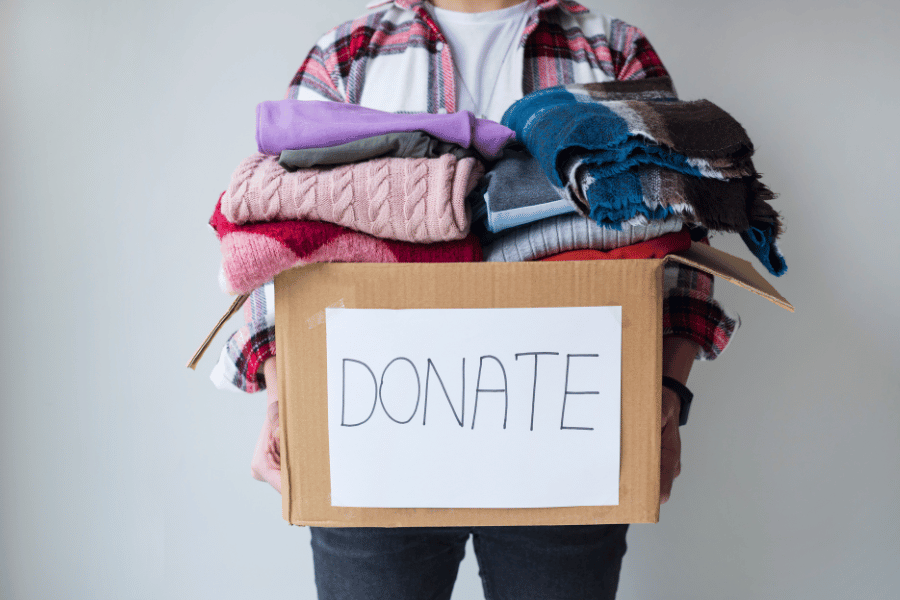
10. Shop Seasonal and Locally Sourced Ingredients
Shopping seasonally and from local farmers and growers can have a positive impact on the environment. It reduces the carbon footprint of transportation, as ingredients and goods do not have to be transported over long distances.
Did you know that transporting food is responsible for 19% of greenhouse gas emissions? When food is transported over long distances, it takes a lot of resources and energy to keep it fresh. By buying local, you support local farmers and buy fresh, high-quality ingredients, and you also decrease carbon emissions.
The same goes for shopping for seasonal ingredients since they are known to be more climate-conscious. Buying local and seasonal ingredients is the more sustainable option, reducing food waste and allowing farmers to rely on low-impact crop production methods.
Methodology
We used data and information from multiple sources including The Department of Energy, The U.S. Environmental Protection Agency, and National Public Radio to determine the ten best sustainable home tips.
FAQs
What type of house is most sustainable?
The most sustainable house types include zero-carbon homes, prefabricated homes, tiny homes, shipping container homes, and solar-paneled homes.
Why do people want sustainable homes?
Having a sustainable home provides many environmental benefits, as it is designed to minimize waste, reduce energy consumption, and lower costs.
What are five eco-friendly habits?
Reducing food waste, conserving energy, conserving water, avoiding plastic use, and recycling are five eco-friendly habits that are easy to adopt in daily life.
Sustainable Home Living Tips - Final Thoughts
From recycling to investing in energy-efficient appliances, there are many easy ways to prioritize sustainability at home. It does not have to be hard, and many families are now adopting these habits in order to make a difference and protect our environment.
Sustainability is now more important than ever, and most energy-efficient changes will save you lots of money. If you are ready to positively impact the environment, now is the time to get started.
Raleigh has a commitment to sustainability, which is one of the many reasons why so many people love living here. Contact the experts at Raleigh Realty to find your dream home and to learn more about life in Raleigh.

Ryan Fitzgerald
Hi there! Nice to 'meet' you and thanks for visiting our Raleigh Real Estate Blog! My name is Ryan Fitzgerald, and I'm a REALTOR® in Raleigh-Durham, NC, the owner of Raleigh Realty. I work alongside some of the best Realtors in Raleigh. You can find more of my real estate content on Forbes, Wall Street Journal, U.S. News and more. Realtor Magazine named me a top 30 under 30 Realtor in the country (it was a long time ago haha). Any way, that's enough about me. I'd love to learn more about you if you'd like to connect with me on Facebook and Instagram or connect with our team at Raleigh Realty. Looking forward to connecting!
Related Blogs
